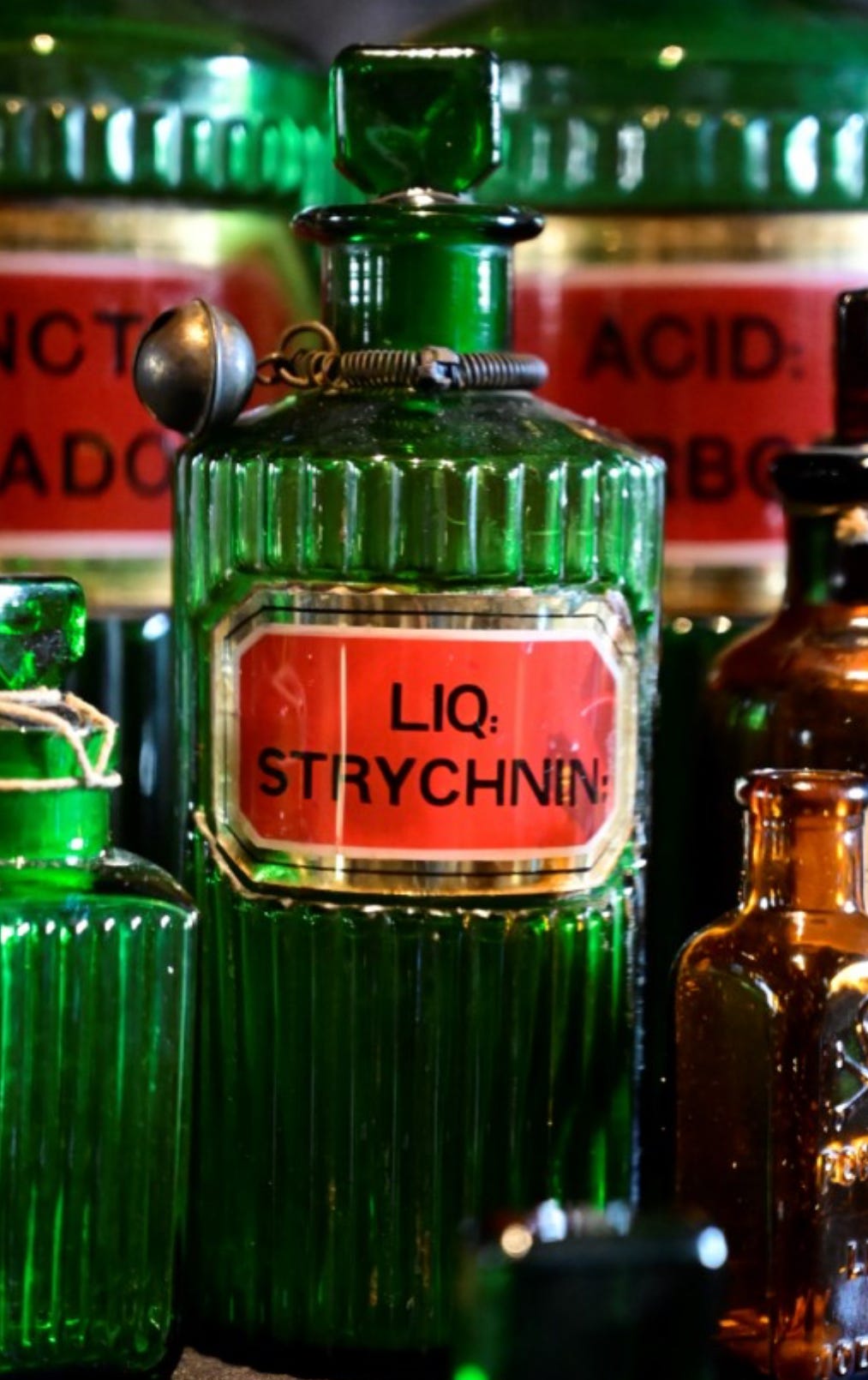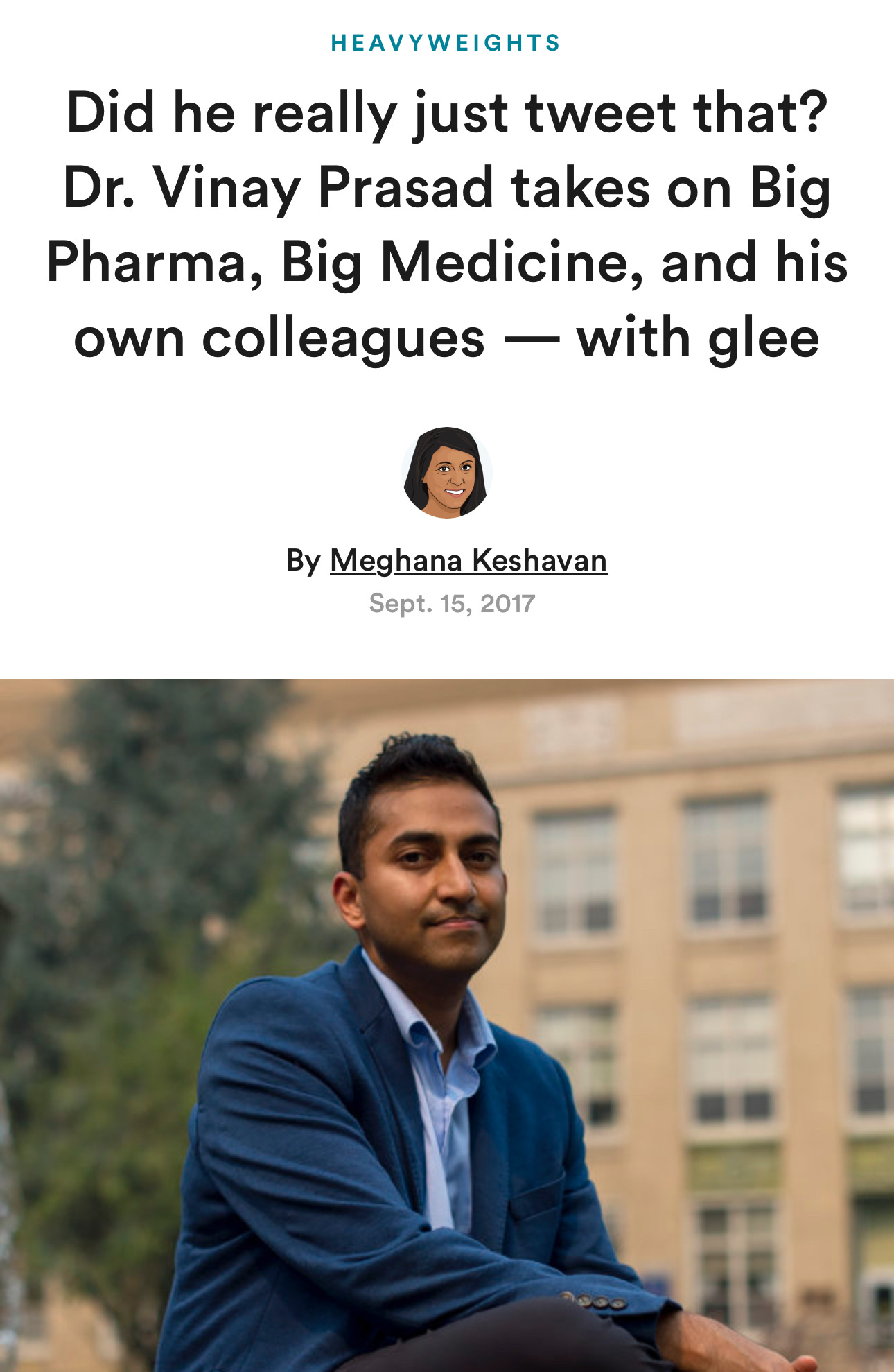
As AI continues to be a core focus of its search experience, Google appears to now be testing the replacement of its iconic “I’m Feeling Lucky” button with a new button for its AI Mode.
more…Yesterday, the Food and Drug Administration named Dr. Vinay Prasad, a San Francisco oncologist, as its top regulator for vaccines and other complex drugs called biologics.
This is a YUGE move.
I know Prasad. He is deeply thoughtful about the value and cost of new medicines. He understands the games Big Pharma plays to win approvals for expensive new drugs that all-too-often have little benefit — and hidden risks.
—
(Know what else is YUGE? Unreported Truths - and that new purple subscribe button.)
—
Those games often rely around the design of clinical trials: keeping them short for a drug that may be used for years; including only the healthiest possible patients (for example, the Covid-19 mRNA vaccine trials included few people over 80, who should have been the focus of the trials); comparing them to other drugs that have serious side effects and are not the true “standard-of-care.”
They also include pressure campaigns to push regulators to quickly approve drugs for serious conditions like cancer on the basis of “surrogate endpoints.” Drug companies, and the desperate patients they work with and fund, argue any treatment is better than no treatment.
They’re wrong.
Even for people who are dying, they’re wrong — at least on the institutional level.
The human body is incredibly complex. Efforts to modify disease and healing processes are even more complex. Medicine is rife with stories of treatments, from bloodletting to lobotomies, that did more than harm than good but that became accepted cures for decades or centuries.
—
(Less toxic than fentanyl…)
—
A few weeks ago I visited a little museum in London called the Old Operating Theatre, which is just what it sounds like — a small warren of rooms built around a surgical theater that was used for hundreds of years.
I highly recommend it. You will walk out with a visceral understanding that until the 19th century, surgery was butchery and drug treatments were witchcraft. Amazingly, even the invention of anesthesia didn’t improve surgery much for decades. Ether just meant that patients died horribly of infections after their operations instead of horribly of shock during them. Only the acceptance of germ theory changed that.
But fixing the process of finding and testing curative medicines took even longer than fixing surgery. Only in the last century have physicians realized they needed to stop guessing and look instead to randomized placebo-controlled trials, where two groups of equally matched patients are given either an experimental drug or a placebo and their outcomes carefully measured.
Randomized controlled trials aren’t usually called a miracle, but they are.
They are the miracle that underlies all the other miracles in drug discovery. They aren’t perfect, but they are as close to the truth as science can get. If one group of patients gets a drug, and another equally matched group doesn’t, and they have different outcomes, it is almost certain that the drug — and not hidden factors — has caused the difference.
No other evidence is as strong, because if the two groups are not randomly separated before receiving the treatment, we can never be 100 percent sure that some hidden difference between the groups caused the difference in outcomes that occurred after taking the drug.
Of course some outcomes are so clear that randomized trials are unnecessary. An old joke explains that you don’t need a randomized trial for a parachute before jumping from a plane. To take a less fanciful example, we don’t have a randomized controlled trial showing that cigarettes cause cancer (such a trial would be both unethical and impossible), but in that case the real-world evidence is overwhelming: nearly everyone who gets lung cancer was a smoker, and rates of lung cancer have risen and fallen along with smoking.
But, in general, randomized trials are the best we’ve got, the foundation of modern medicine, the reason doctors can say, this works or this doesn’t.
—
(Meet your new director of the Center for Biologics Evaluation and Research)
—
But randomized trials can also be the enemy of drug approvals, and so pharmaceutical companies have been chipping away at them for decades. Most recently, they have pressed for “accelerated approvals” that show a drug may work, while promising more data once a drug is on the market.
But those approvals have too frequently led to drugs that don’t work — and that take years to withdraw. Once a company can profit from commercial sales, it will do everything it can to delay collecting data that might force it to stop selling a drug.
And even if a company has good intentions, post-approval data can be messy and hard to collect. Many people won’t enter a clinical trial where they might not receive a drug if they know they can get it outside the trial. The FDA has maximum leverage before approval.
Prasad knows all of this. And as an oncologist he has seen the harms of false hope in cancer treatment up close. He’s going to hold the companies to high standards. The right standards.
—
(Boom goes the dynamite!)
—
No wonder a lot of biotechnology companies plunged yesterday after word of his appointment came out. Moderna lost 10 percent of its value in two hours (and is now down a cool 95 percent from 2021).
There’s a new sheriff in town.
And the varmints are on notice.

